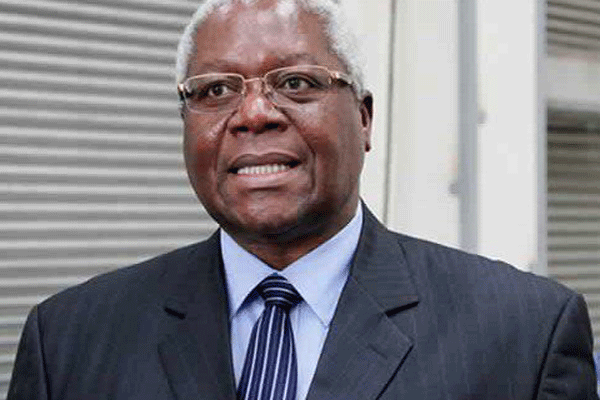
The State has hired a private lawyer, Advocate Thabani Mpofu, in a bid to defend the State Liabilities Act, which is being challenged by Mutare businessman, Tendai Blessing Mangwiro, in a contempt of court case involving Home Affairs minister Ignatius Chombo.
BY CHARLES LAITON
Mangwiro wants the State Liabilities Act scrapped off the statutes to enable him to attach government property after Chombo defied a court order compelling him to release $1,5 million confiscated from the businessman in 2008.
Mpofu has since filed heads of argument on behalf of Vice-President Emmerson Mnangagwa, Chombo and Attorney-General (AG) Prince Machaya, who are cited as respondents in the Constitutional Court (ConCourt) application matter, which is set to be heard tomorrow.
In his application, Mangwiro, through, his lawyers from the Zimbabwe Lawyers for Human Rights, said he was seeking confirmation of the removal of the State Liabilities Act from the statutes in order to enable him to attach government property with a view to recover his money.
But Mpofu argued that all State property was immune to attachment and that the State Liabilities Act provided for other avenues through which Mangwiro could execute his judgment.
“Now, if an order sounding in money has been granted, it imposes an obligation upon the nominal defendant (Chombo) to cause payment. If the nominal defendant does not cause payment, a mandamus and, thereafter, contempt of court proceedings must be instituted against that defendant and he will be jailed until he causes payment,” Mpofu said.
“It is as simple as that. The net result is that it is not possible for an order to be made against the State and not be satisfied … thus, it is incorrect to say that the State enjoys any immunity, it just does not, and it is obliged to pay just like any other litigant.”
- Chamisa under fire over US$120K donation
- Mavhunga puts DeMbare into Chibuku quarterfinals
- Pension funds bet on Cabora Bassa oilfields
- Councils defy govt fire tender directive
Keep Reading
The lawyer submitted it was in the interest of the public for the State’s property to be saved from execution, saying: “What is simply protected is the State’s properties. Of course, one cannot wake up and find that Munhumutapa Building has been attached and the President is now working from his home,” Mpofu said.
He further said the essence of such an order obtained by Mangwiro was that it was enforceable by committal proceedings.
“… that order (May 16, 2016) directs second respondent (Chombo) to comply with the duty cast upon him by section 5(2) of the Act, being to cause to be paid to applicant the judgment debt out of the Consolidated Revenue Fund,” he said.
However, in his response, Mangwiro said he had exhausted all the remedies alluded to by Mpofu, arguing it was on that basis that he was now seeking for an order to invalidate the State Liabilities Act.











